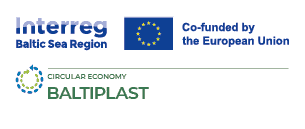
BALTIPLAST Project Highlights Innovative Approaches at UBC TALKS Webinar
12 December 2024
Video recording is available here. This online event focused on green public procurement and brought together representatives from four Baltic Sea Region (BSR) capitals – Stockholm, Helsinki, Riga, and Tallinn – along with insight from three key projects: BALTIPLAST, NonHazCity 3, and ChemClimCircle.
Public procurement is a powerful tool that cities can leverage to promote sustainability across various activities. The webinar highlighted a variety of inspiring examples, from the procurement of office supplies like phones and erasers to organising green events and rebuilding social housing under circular and toxic-free criteria. These initiatives emphasised how cities can lead the way in integrating sustainability into their everyday operations.
Tallinn’s Green Event Guidelines: A BALTIPLAST Initiative
Liina Kanarbik, Chief Specialist in the Circular Economy Department at the City of Tallinn, represented the BALTIPLAST project during the webinar. She presented Tallinn’s guidelines and criteria for organising green events, developed with the support of the BALTIPLAST project. These guidelines are part of the city’s broader efforts to implement sustainable practices, as outlined in the Tallinn Waste Management Plan 2022-2026, which aims to advance the city’s transition to a circular economy.
Tallinn’s green event criteria cover various applications to ensure sustainability, including:
- Using reusable decorations and refillable containers instead of disposables.
- Providing access to tap water.
- Ensuring separate waste collection, including reusable dishes.
- Promoting green mobility options for event attendees.
Since 2023, all events in Tallinn have been required to serve food and drinks in reusable containers. Starting in 2024, this rule will expand to public events across all of Estonia.
The Power of Cities in Public Procurement
“Cities have the power in their hands when it comes to procurement. Cities can set the criteria themselves, and sometimes they don’t have to wait for regulations from their governments,” said Kanarbik during her presentation. This sentiment reflects the growing recognition of cities’ pivotal role in driving sustainability and circular economy practices through strategic procurement decisions.
By sharing these innovative approaches, the BALTIPLAST project and its partners continue to inspire and empower cities across the Baltic Sea Region to adopt sustainable practices, demonstrating how procurement can be a catalyst for positive environmental and social change.





